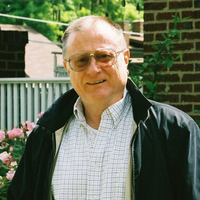Caseworker, 1962
In 1962, I was a caseworker, not a social worker, in the Cabrini-Green Housing Project in Chicago. In that era, the difference between a caseworker and a social worker was simple. A social worker had a degree or two in social work and was qualified to work with the poor. A caseworker usually had a degree but not in social work. And a caseworker usually had too many clients to have time to do social work even if he or she had a social work degree and knew how to apply it.
To be hired by Cook County Department of Public Aid as a caseworker in 1962, all one had to have was a degree in anything and the ability to pass a test. I passed the test and was assigned as a novice caseworker to Cabrini-Green, perhaps the “toughest" housing project in Chicago at that time. I was assigned to two high-rise buildings with 458 families. I remember their addresses as clearly today as the address of my childhood home. Some things one always remembers.
Being a caseworker in Cabrini-Green was not a job coveted by many. But I was fresh out of grad school, had a pregnant wife, and absolutely no interest in business where salaries, of course, were higher and “careers” potentially much better. I may not have had any training in social work but I really didn’t need any formal training to keep filling out and filing new forms for the many changes that occurred in the lives of the families in my “caseload.”
There are many stories of clients and their lives that I remember because they are impossible to forget. But the one I remember best may illustrate why some “poor people,” even today, 50 years later, fail to climb the ladder of success as many middle-class and upper-class families wish they would, if not always for compassionate reasons.
My story involves a young black man, married with two children, who managed to graduate from a local junior college despite living in Cabrini-Green. I happened to see a notice in the neighborhood posted by a major grocery chain looking for a manager trainee at its nearby store. A high school diploma was required. I thought my client was more than qualified.
When I went with my client to the store to make his application, I thought nothing about the workers, at least the ones I saw, being all white and the customers being all black. This was 1962 and that composition would have raised no eyebrows in most stores in the neighborhood surrounding Cabrini-Green. I still thought my client had a chance to get the job. He had a degree from a junior college, looked comfortable in a white shirt and tie, and spoke “white English” in public. He seemed very intelligent.
I was probably about the same age as my client but I came from an all-white section of the city, home to blue-collar immigrants, and my father paid my college tuition. My client worked to pay his tuition and feed his family at the same time. Although I thought he would get the job at the grocery store, he never thought he would. But since I was his caseworker, he went along to fill out the application. Sadly he turned out to be right. And I learned a lesson that day that made a deep impression on me as a novice caseworker.
I can only hope that things are different today, and to some degree I suspect they are. Qualified minorities do get hired in many situations they would not have in 1962. Times change, in some ways for the better but not always for the better. And some things remain stiflingly the same.
Over the decades since, I have often wondered what might have happened to my client and his family. I thought about him again this morning when his mirror image appeared as a news reporter on a TV station in St. Louis. The young reporter looked almost exactly like my client and talked almost as well as he did. The reporter, however, looked as though he knew he would get the job at that station in 2015. My client knew the grocery store would not hire him in 1962.
In St. Louis now, black reporters and black anchors are not the exception to the rule, especially since the 2014 death of Michael Brown in one of our inner-ring suburbs, Ferguson.
I imagine the TV station required the young reporter to have a degree and probably the ability to speak “white English” in public. How he talks on his own time is his own business. After all, I was able talk any way I wanted to when I went home from my job at Cabrini-Green. My kids used to say I sometimes slipped into my father’s Irish brogue when things didn’t go exactly as I had planned. At times I still do. Our roots are always with us.
Donal Mahoney

